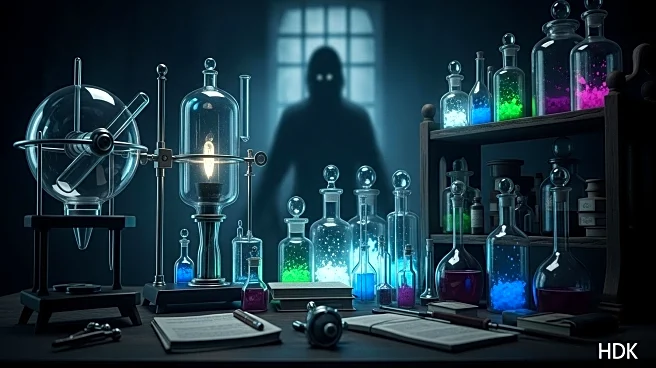What's Happening?
Guillermo del Toro's adaptation of Frankenstein is set to receive a limited theatrical release on October 17, followed by a Netflix release on November 7. The film delves into themes of generational trauma, focusing on the cycle of pain passed down from parent to child. Oscar Isaac stars as Victor Frankenstein, whose abusive upbringing by his father Leopold, played by Charles Dance, influences his creation of the Creature, portrayed by Jacob Elordi. The film remains faithful to Mary Shelley's original novel while introducing new characters and plot twists. Del Toro's version emphasizes the emotional depth and complexity of the characters, particularly the Creature, who is depicted as a sympathetic figure seeking companionship.
Why It's Important?
This adaptation of Frankenstein by Guillermo del Toro is significant as it brings a fresh perspective to a classic tale, highlighting the impact of generational trauma. The film's exploration of these themes resonates with contemporary audiences, offering insights into the consequences of familial abuse and neglect. By focusing on the emotional struggles of both Victor and the Creature, del Toro's film encourages viewers to reflect on the importance of empathy and understanding in breaking cycles of pain. The release on Netflix ensures wide accessibility, potentially influencing public discourse on these critical social issues.
What's Next?
Following its theatrical release, Frankenstein will be available on Netflix, allowing a broader audience to engage with its themes. The film's portrayal of generational trauma may spark discussions among viewers and critics, potentially influencing future adaptations of classic literature. As audiences respond to the film, there may be increased interest in exploring similar themes in other media, encouraging filmmakers to address complex social issues through storytelling.
Beyond the Headlines
Guillermo del Toro's Frankenstein not only revisits a classic story but also challenges viewers to consider the ethical implications of scientific experimentation and the responsibilities of creators towards their creations. The film's depiction of Victor Frankenstein's moral dilemmas and the Creature's quest for identity and acceptance raises questions about the nature of humanity and the consequences of playing god. These deeper themes may inspire audiences to reflect on their own relationships and the societal structures that perpetuate cycles of trauma.










